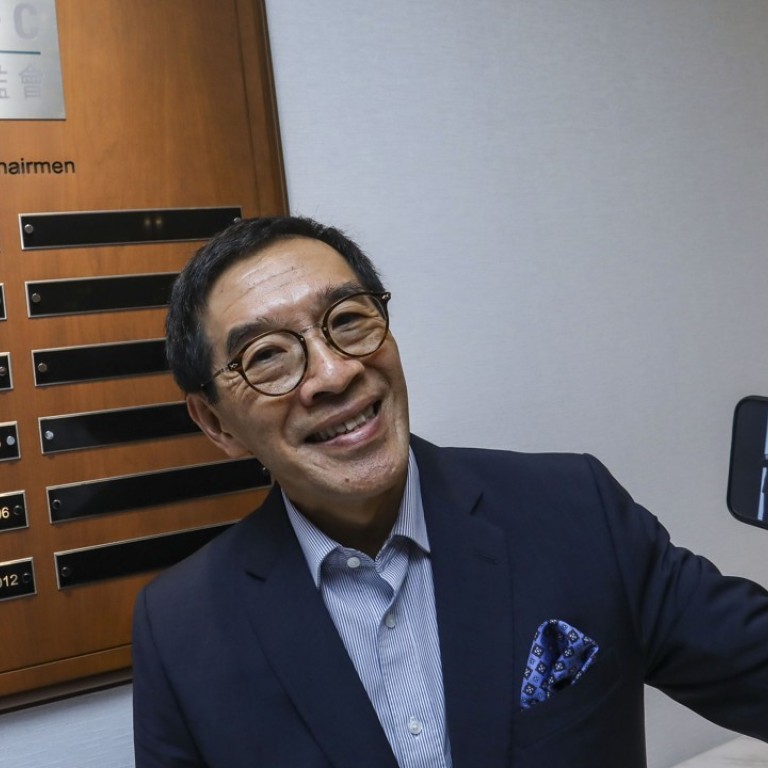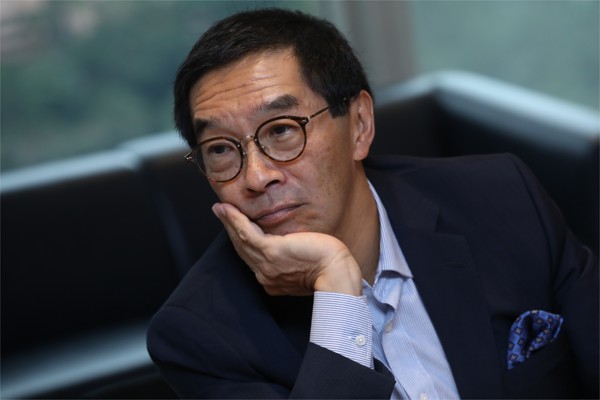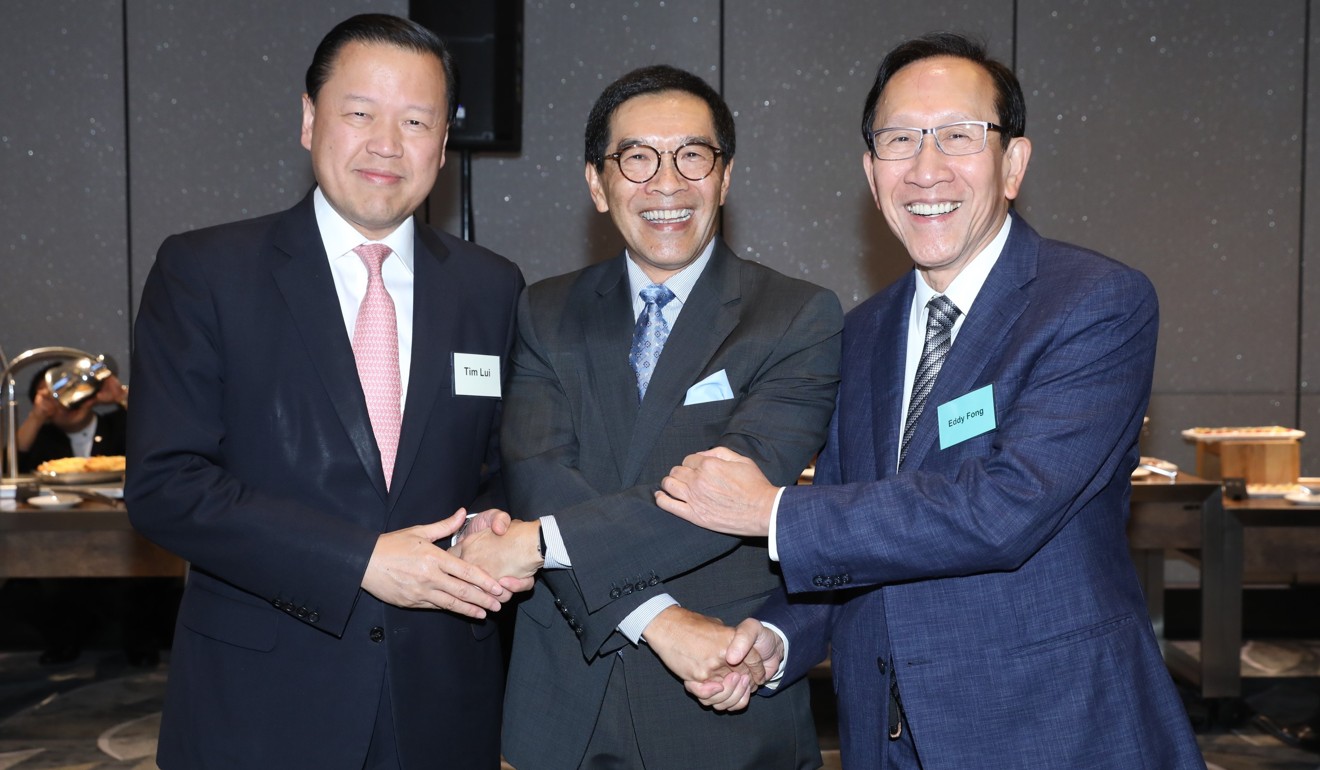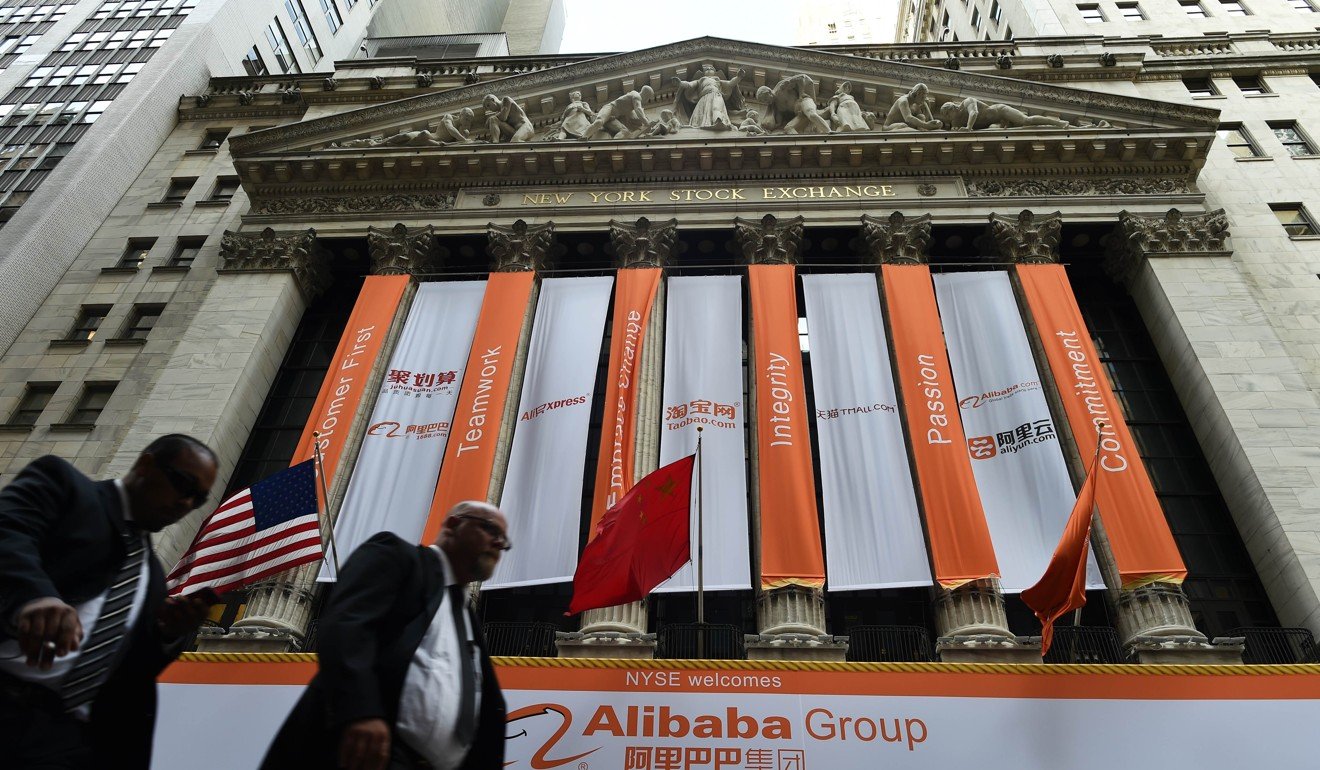
SFC chairman Carlson Tong exits after dishing out nearly HK$4 billion in penalties
Six-year tenture saw the former head of KPMG in mainland China casting the regulatory spotlight firmly on corporate fraud, insider dealing, poor new listings and other white collar crime
Outgoing Securities and Futures Commission (SFC) chairman Carlson Tong Ka-shing says he’s proud of what he has achieved in his six years at the helm of Hong Kong’s stock-trading watchdog.
His main achievements in that time, he says, have been cracking down on so-called “con stocks, dolling out nearly HK$4 billion (US$510 million) in fines, and awarding compensation worth millions of dollars to hard-done-by investors.
The former chairman of KPMG in mainland China was an 30-year veteran accountant before joining the SFC in October 2012.
His regulatory agenda since then has included casting the spotlight on corporate fraud, insider dealing, poor new listings and other white collar crime.

A detailed look back on South China Morning Post’s reporting of Tong’s tenure reveals a top 18 high-profile cases which resulted in combined monetary penalties of HK$3.66 billion (see attached table, compiled by SCMP) for insider dealing, false disclosure, internal control failures, and mis-selling.
Peddling poor quality initial public offerings (IPOs) featured highly, too, with six sponsors fingered for failing in their duty to check on the quality of the companies seeking to go public.
Qunxing Paper Holdings and Hontex International were the two worst offenders, both having to repay the IPO funds raised to investors, after the SFC found they have given misleading information.
Together with the hundreds of smaller fines, Tong’s total may well be over HK$4 billion in fines.
“I don’t use the number of investigations or the amount of fines as my key performance indicator,” Tong said, in his last interview as chairman of the regulator before he has due to step down on Friday.
“What I am more proud of is the use of section 213 of the Securities and Futures Ordinance, which requires a person or company which has committed misconduct to compensate investors who have suffered a loss due to malpractice or fraud.”

His crackdown on “con stocks” – low-priced penny stocks that are easily manipulated – also heralded a rush of rule changes and investigations, including its new “real-time and front-loaded” regulatory approach to cleaning up the market.
“The commission is currently investigating about 100 companies and individuals and is targeting legal proceedings against around 60 of them, which would be the largest scale of litigation in 30 years by the SFC,” Tong said.
Top of its ongoing agenda are plans for a market consultation on tighter investor IDs for all market trading. Only broker identification currently needs to be disclosed at trading machines, with investor identities only needing revealed upon request.
“Full disclosure would help surveillance of the market. When traders realise the SFC and the market knows who are trading certain stocks, they will behave better,” he insists.
The Tong era, however, has not been without its setbacks.
The SFC failed, for instance, in its court order to extract HK$1.9 billion in compensation from Citic former chairman Larry Yung and other four directors, for not disclosing hefty forex losses in 2008. The Market Misconduct Tribunal last year cleared Yung and other directors’ charge.

The biggest controversy, though, was surely the SFC’s failure to land the world’s largest flotation in history – Alibaba Group in 2014, which chose instead to list in New York, eventually raising US$25 billion – after the SFC refused to allow it to have dual-class stock [the issuing of various types of shares by a single company]. Alibaba owns South China Morning Post.
“I have no regrets that Alibaba did not list in Hong Kong because the listing rules at that time did not allow it.
“It was not appropriate to grant an exemption just because the company was big,” he still maintains.
“We have spent the past four years debating and consulting to establish a proper regulatory framework for such companies to list. Since listing reforms in April, Hong Kong is now the only market to have such a framework,” he said.
He will now let his successor Tim Lui Tim-leung finish the project with the stock exchange to expand the listing reforms further to allow companies, instead of only individuals, to hold premium voting rights, too.
After leaving the SFC, Tong is free to take on any independent non-executive director roles, be they with listed or private firms, and says he has received enquiries.
“I will focus my public duty on the higher education sector as chairman of the University Grants Committee before I would take up any other commercial appointment,” said the 64-year-old. “And I will try to spend more time with my [two] grandchildren.”
Gary Cheung Wai-kwok, chairman of Hong Kong Securities Association, is in no doubt Tong has helped improve the quality of the market.
“Mr Tong has stepped up enforcement efforts to enhance investor protection,” Cheung told SCMP.
“He may have introduced some controversial reform proposals but at the same time he was also willing to listen to opinions from the market.”

